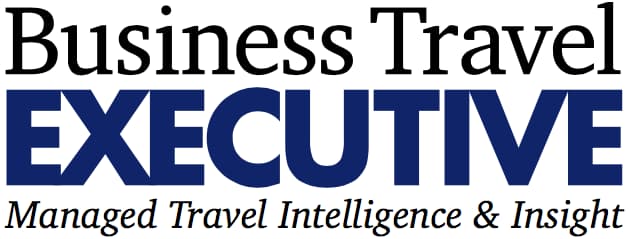Balancing the Risk
Managing travel risk is important. Don’t overlook opportunities to round out your strategy

The matter of risk is a complicated issue for corporations, particularly among its traveling employee population. It really begins and ends with the individual traveler, but the responsibility extends through multiple departments and process owners from security to IT to HR.
The travel manager plays a large role in any risk management/ Duty of Care decisions that affect travelers – and the greater the number of travelers, the more risk management policies and execution fall under the travel department’s umbrella. As we report in TMCs As Risk Partners (page 26), travel management companies are increasingly offering Duty of Care features to their clients. The question is, what’s the right mix of suppliers for your program? And the answer is – as always – it depends.
BTE Think Tank members Cheryl Benjamin, Travel Services Manager at Dart Container Corporation and Rosemary E. Maloney, Senior Manager, Global Travel at Coach, offer differing perspectives on which suppliers offer the best support for risk management strategy.
Point
Cheryl: In today’s environment, not having a third party as your partner in risk management is, well, risky. Whether you use a company associated with your TMC or as a direct agreement, not focusing on Duty of Care is putting your organization in a potentially dangerous position – legally and financially.
Companies such as ISOS, iJet, Anvil, and others, are experts in this arena. By connecting your travel program with one of them, you and/or your TMC will have instant access to traveler tracking and timely notification of incidents (domestic and international), which will allow you to react quickly if necessary.
Technology has allowed these risk professionals to develop highly sophisticated means of tracking, communicating and assisting your employees when the service is most needed. For example, they can push SMS messaging on your behalf. If they receive a request for assistance, they immediately notify those in your response chain. Having this type of service could save hours in notification and response time, in situations where every second counts.
The cost of these risk programs can vary depending on the services you need. However, the value and protection they provide the organization and the travelers far outweigh the investment. Duty of Care is real, and without a solid program your company is left vulnerable.
Counterpoint
Rosemary: While it would always be beneficial to have a vendor dedicated to Duty of Care, many companies don’t give travel programs the resources to work with a separate provider. In those cases, resourceful travel managers are using their travel management companies to track where people are – or at least where they’re booked to be.
Duty of Care providers get a feed of this information as well. No matter who’s dealing with it, this is the basis for what we are using to track employees. Additionally, depending on how the feed goes over to your Duty of Care provider, the TMC may have a more up to date itinerary for your traveler.
My current TMC has a traveler tracker that I can use to find where people have booked through the system. While they are quick to say it’s not a substitute for a Duty of Care provider, the information is still valuable when you need to know where employees are in a hurry. Many times we’ll pull an in-trip report as a double check in an emergency, as well as well as reaching out to our local office. My previous company did not have the funds for a separate solution, so having at least this would have been a great tool for us to have available in a crisis.
Travel programs are typically underfunded, understaffed and overwhelmed. Using your TMC is one tool at your disposal to identify where employees are booked to be when they find themselves in critical situations.
The travel manager plays a large role in any risk management/ Duty of Care decisions that affect travelers – and the greater the number of travelers, the more risk management policies and execution fall under the travel department’s umbrella. As we report in TMCs As Risk Partners (page 26), travel management companies are increasingly offering Duty of Care features to their clients. The question is, what’s the right mix of suppliers for your program? And the answer is – as always – it depends.
BTE Think Tank members Cheryl Benjamin, Travel Services Manager at Dart Container Corporation and Rosemary E. Maloney, Senior Manager, Global Travel at Coach, offer differing perspectives on which suppliers offer the best support for risk management strategy.
Point
Cheryl: In today’s environment, not having a third party as your partner in risk management is, well, risky. Whether you use a company associated with your TMC or as a direct agreement, not focusing on Duty of Care is putting your organization in a potentially dangerous position – legally and financially.
Companies such as ISOS, iJet, Anvil, and others, are experts in this arena. By connecting your travel program with one of them, you and/or your TMC will have instant access to traveler tracking and timely notification of incidents (domestic and international), which will allow you to react quickly if necessary.
Technology has allowed these risk professionals to develop highly sophisticated means of tracking, communicating and assisting your employees when the service is most needed. For example, they can push SMS messaging on your behalf. If they receive a request for assistance, they immediately notify those in your response chain. Having this type of service could save hours in notification and response time, in situations where every second counts.
The cost of these risk programs can vary depending on the services you need. However, the value and protection they provide the organization and the travelers far outweigh the investment. Duty of Care is real, and without a solid program your company is left vulnerable.
Counterpoint
Rosemary: While it would always be beneficial to have a vendor dedicated to Duty of Care, many companies don’t give travel programs the resources to work with a separate provider. In those cases, resourceful travel managers are using their travel management companies to track where people are – or at least where they’re booked to be.
Duty of Care providers get a feed of this information as well. No matter who’s dealing with it, this is the basis for what we are using to track employees. Additionally, depending on how the feed goes over to your Duty of Care provider, the TMC may have a more up to date itinerary for your traveler.
My current TMC has a traveler tracker that I can use to find where people have booked through the system. While they are quick to say it’s not a substitute for a Duty of Care provider, the information is still valuable when you need to know where employees are in a hurry. Many times we’ll pull an in-trip report as a double check in an emergency, as well as well as reaching out to our local office. My previous company did not have the funds for a separate solution, so having at least this would have been a great tool for us to have available in a crisis.
Travel programs are typically underfunded, understaffed and overwhelmed. Using your TMC is one tool at your disposal to identify where employees are booked to be when they find themselves in critical situations.
Categories: Special ReportTravel Buyers Think Tank
Publishing Office:
Three Silver Star Court
Unit 1
Vernon, NJ 07462
973-839-6200
JAllison@askbte.com
Editorial Office:
5768 Remington Drive
Winston-Salem, NC 27104
336-766-1961
DBooth@askbte.com
Subscription Services:
P.O. Box 542
Pompton Plains, NJ 07444
973-839-0620
subscriptions@askbte.com








